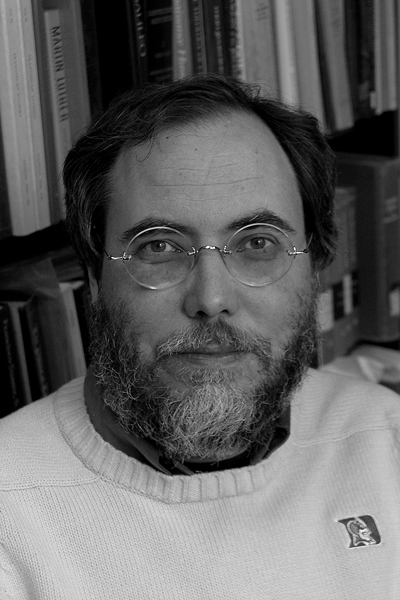 Dr.
James South
Dr.
James SouthKEYNOTE ADDRESS
Professor
Philosophy
Marquette University
Milwaukee, WI 53201-1881
"On the Philosophical Consistency of Season 7"
[Click on the link above to see this paper's placement in the SCBtVS Program.]
|
In this paper, I ask whether the "lessons" conveyed by the episodes of Season Seven of Buffy the Vampire Slayer are philosophically consistent. One major complaint voiced against Season Seven by viewers is that it took too long to get to the action—the final confrontation with the First Evil and his race of über-Vampires. The corollary complaint is that the middle stretch of the series (roughly episodes seven through fifteen) lacked narrative drive. I think there is a compelling philosophical account that can justify such a narrative strategy. The first episode of the season, "Lessons," suggests the instructive function of the season as a whole in both its title and its theme: "It’s all about power." What lessons about power are we supposed to learn as the season progresses? I think the most notable confluence of ideas revolves around the notion of the First Evil and its minions. The salient power of the First Evil is not physical, but psychological: its ability to project illusions that others believe to be real—or believe even when they know them not to be real. Thus, the basic lesson of power is that illusion can be more powerful than reality. Of course, raising the illusion/reality dichotomy brings us right to the heart of philosophy. It is striking that the illusions of the First Evil center on family and love, and play on the insecurities that accompany human relationships (Buffy and Spike, Dawn and Joyce, Willow and Tara, Warren and Jonathan/Andrew). The question I want to raise is whether there is a consistent way in which these illusions are dispelled, and I will answer in the affirmative. However, there is another side to the issue of power—physical force. When the First Evil decides to develop a force, it appears overwhelming in size and strength, yet, ultimately, is easily vanquished with little real physical harm. I explore the ease with which physical force is dispatched (thanks in great part to an object of mystical provenance) and contrast that with the long path to dispelling the illusions fostered by the First Evil in the context of human relationships. In the end, then, I show that it makes good philosophical sense to suggest that the "reality" of illusion is considerably more powerful (and much harder to defeat) than the reality of physical power. |